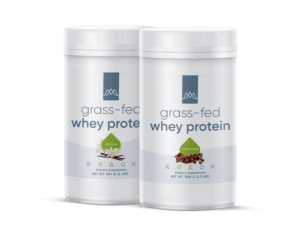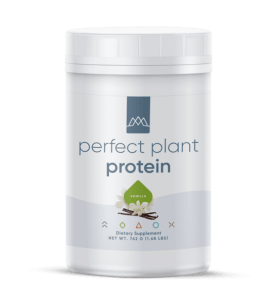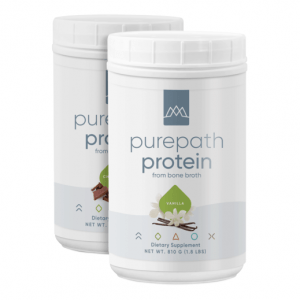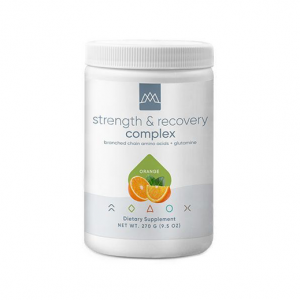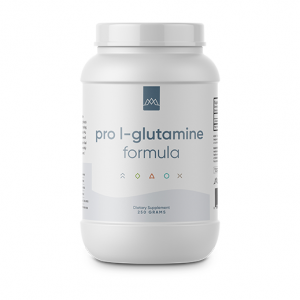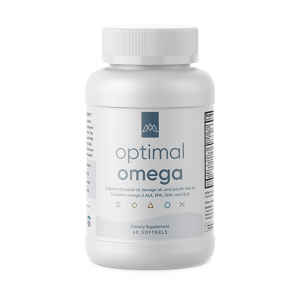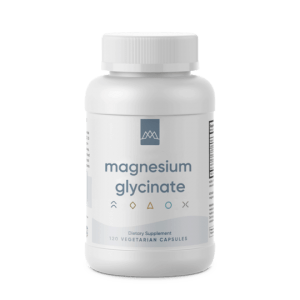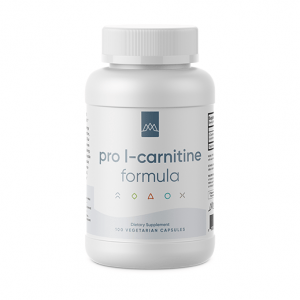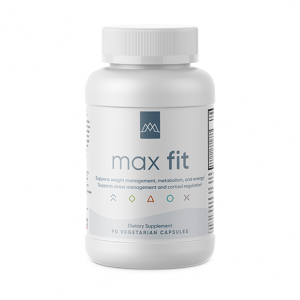Skip to:
- Performance Supplements: What’s Hype and What’s Substantiated?
- Protein Powder for Maximum Muscle Gain and Strength
- Branched-chain Amino Acids (BCAAs) – Essential for Muscle Growth and Repair
- Glutathione is a Powerful Antioxidant to Reduce Inflammation
- L-Glutamine for Fast Recovery
- Essential Fatty Acids to Balance Your Body’s Needs
- Magnesium for Your Metabolism and Mood
- L-Carnitine to Break Down Fat and Increase Energy
- Creatine for Bodybuilders And Everyday Exerciser
- Ashwagandha – An Antioxidant and Anti-inflammatory to Increase Athletic Performance
- Decaffeinated Green Coffee Bean Extract to Naturally Maintain a Healthy Weight
“Get more energy! Burn fat faster! Build muscle! Recover quicker!”
Ergogenic Aids – Or – Workout Supplements
Those are among the many claims of ergogenic aids, more commonly called exercise or workout supplements, which you will find as powders, pills, and liquids in warehouse chains, fitness stores, health food grocery stores, vitamin shops, and many gyms.
These supplements include anything that can potentially increase energy, improve recovery, or otherwise enhance athletic performance. [1] “Numerous ergogenic aids that claim to enhance sports performance are used by amateur and professional athletes,” states Dr. Dale M. Ahrendt, a pediatrician, at Brooke Army Medical Center, in Fort Sam Houston, Texas. [2]
Knowing that almost every athlete wants the advantages of ergogenic aids, manufacturers have created a wide array of supplements that make bold, sometimes-unsubstantiated claims.
Performance Supplements: What’s Hype and What’s Substantiated?
Hype and hyperbole often surround conversations about workout supplements. Many fitness-oriented supplements lack quality, unbiased studies to support their efficacy, and sometimes athletes use these supplements at higher-than-recommended doses. [3]
Adding to these and other complications, the U.S. Food and Drug Administration (FDA) does not review the thousands of products available to prove scientific supplements are efficacious. [4]
At the same time, some ergogenic aids do have scientific credibility. Using these supplements—of course in the correct amounts—and from reputable manufacturers, could provide a bit of an edge when you’re doing everything else correctly.
Supplements are just that: Intended to complement healthy dietary and lifestyle behaviors. You build muscle in the gym, not from a protein powder. If you’re not eating healthy, getting at least seven to eight hours of quality sleep nightly, and managing stress, these supplements are unlikely to help athletic performance or anything else.
However, if you’re following a healthy eating plan (such as the Core or Advanced Plans) and dialing in healthy lifestyle factors, such as performing the right exercise, research shows the following supplements can maximize athletic performance.
Protein Powder for Maximum Muscle Gain and Strength
Regardless of what manufacturers want you to believe, you don’t need a protein powder to build muscle or otherwise support your workout. You can do just fine getting sufficient protein from whole foods, including wild-caught fish, grass-fed beef, nuts, seeds, and grass-fed dairy products. But using a protein powder means one less workout-related hassle. You simply throw a scoop or two of powder into your shaker cup, shake everything up with filtered water, and you’re good to go.
Whey Protein
Among workout protein powders, whey is the winner. This quickly absorbing protein powder provides the amino acid precursors to support lean body mass, muscle synthesis, recovery, and immune health; four things any athlete wants. Grass-fed whey is especially rich in the amino acid leucine to support muscle protein synthesis. [5] [6] [7] [8]
Pea Protein
If you’re vegan or otherwise want to avoid dairy products, plant-based protein, such as pea protein, makes a good alternative to whey. Pea combined with another protein (such as hemp) may optimize its amino acid profile. [9]
Bone Broth Beef Protein
A new player among protein powders is beef protein powder (sometimes called bone broth powder), rich in the amino acids that help build your major structural protein collagen.
Regardless of which one you choose, quality becomes critical for buying protein powders. Make sure to look for products with pure ingredients and no added sweeteners or preservatives.
Branched-chain Amino Acids (BCAAs) – Essential for Muscle Growth and Repair
Branched-chain amino acids (BCAAs) are composed of three essential amino acids: The aforementioned muscle-supporting leucine along with isoleucine and valine. (Essential means your body cannot make these amino acids; therefore, you must get them from food or supplements.) [10]
BCAAs comprise 35 percent of the essential amino acids in muscle protein, making them ideal for people who do resistance training or otherwise want to support muscle growth and repair. [11]
Among their benefits, BCAAs can stimulate muscle synthesis and reduce exercise-related muscle breakdown. BCAA supplements have been shown to increase recovery rates (including muscle soreness) compared with placebo among trained athletes. [12]
One meta-analysis found that BCAAs help improve recovery after various forms of exhaustive and damaging exercise, due to reducing muscle soreness, while also improving muscle strength.
You can take BCAAs before and after exercise, though one study found that supplementing before exercise improved muscle damage and soreness better than using BCAAs after exercise. (Consider using BCAAs before your workout and then a protein powder post-workout.) [13]
One caveat: BCAA powders taste terrible, so manufacturers often add artificial sweeteners, flavors, and other undesirable ingredients to mask the taste. Skip these and look for a naturally flavored BCAA powder sweetened with stevia.
BCAAs may be paired in manufacturing with L-glutamine, an amino acid that works synergistically to support recovery and immune health.
Glutathione is a Powerful Antioxidant to Reduce Inflammation
For all the good that exercise does, it can also potentially impact your body adversely. Oxidative stress occurs when harmful free radicals overpower your body’s antioxidant defense. Intense, strenuous, or over-exercising (conditions that happen to us all sometimes) can contribute to oxidative stress, a major player in numerous diseases. In these situations, antioxidant supplements can benefit athletes. [14] [15]
The ideal way to shift that balance includes eating a diet rich in fruits, vegetables, and other antioxidant-rich foods. Research shows that along with these foods, using antioxidant-based supplements can potentially provide additional benefits to protect athletes. [16]
Hundreds (if not thousands) of nutrients can act as antioxidants, including vitamin C and lipoic acid. [17] One of the most important is glutathione, your master antioxidant that also controls inflammation and so many other functions crucial for optimal physical performance. [18]
Glutathione is a tripeptide (three amino acids) containing cysteine, glutamic acid, and glycine. [19] Your body can synthesize this antioxidant with those amino acids, but certain conditions, including chronic stress, environmental toxins, insufficient nutrition, and growing older, can reduce glutathione levels. [20] Glutathione deficiencies can increase oxidative stress which increases your risk for disease. [21]
One solution for optimizing levels of this master antioxidant is through supplements. Researchers debate, however, whether oral glutathione survives intact because the gut potentially breaks it down into its three amino acids.
A more efficient, cost-effective way to get glutathione is with supplement precursors. Research shows that whey protein can boost glutathione levels. [22] So does N-acetyl-cysteine (NAC), a sulfur-containing amino acid that can also help reduce inflammation. [23]
L-Glutamine for Fast Recovery
This conditionally essential amino acid (meaning in some situations, your body cannot make sufficient amounts) is a workhorse nutrient with an impressive result to support healthy blood sugar levels, immune system, gut health, and much more.
L-glutamine (also called glutamine) can also optimize athletic performance. Research shows that prolonged exercise and heavy training can decrease glutamine levels potentially impairing immunity and increasing infections in athletes. [24]
Other studies show that supplementing with glutamine post-exercise can reduce soreness and support faster recovery. [25] Glutamine also supports the synthesis of glutathione, which can reduce muscle fatigue. [26] [27]
While you can find glutamine in capsules, the powder is more efficient to get the correct amount (about 5 grams per serving) for these and other therapeutic benefits. [28] The powder has a mild taste and mixes easily in water, protein shakes, and smoothies.
As a bonus, glutamine can curb sugar cravings. In his book, The 150 Most Effective Ways To Boost Your Energy, Jonny Bowden, Ph.D., says that “a spoonful of the powder will do wonders for knocking your sugar cravings right out of the park.”
Larger doses of L-glutamine are completely safe, with one study showing athletes who used 28 grams of glutamine daily (far more than you will probably use) for 14 days had no adverse effects. [29]
Essential Fatty Acids to Balance Your Body’s Needs
At one time, humans ate about equal amounts of omega-6 fatty acids and omega-3 fatty acids. Our modern Western diet shifted that ratio substantially, and today we consume at least 20 times more omega-6 fatty acids. [30]
These imbalances contribute to chronic inflammation that can impair athletic performance. [31] Conversely, over-exercise can increase inflammation, creating a vicious cycle that can leave you sore, fatigued, and not performing optimally. [32]
Eating more foods high in omega 3s can rebalance that ratio. They include wild-caught fish [rich in eicosapentaenoic acid (EPA) and docosahexaenoic acid (DHA)], as well as flaxseeds and chia seeds [rich in alpha-linolenic acid (ALA)].
If you aren’t regularly eating those foods, the right supplement can provide all three omega-3 fatty acids. Research shows supplementing with omega-3s can lower inflammation, reduce post-exercise soreness, and provide other benefits for athletes. [33]
To get that full spectrum of EPA, DHA, and ALA, look for an omega-3 supplement that combines fish oil and flax oil.
Magnesium for Your Metabolism and Mood
This essential mineral plays a role in over 300 enzymatic cofactors including those involved in energy metabolism and muscle function. [34] [35] Your body contains about 25 grams of magnesium and of that amount, muscles contain about 27% of it. [36]
Most people (even physically active people) are deficient in this mineral, and numerous studies have found that the requirements for magnesium increase as physical activity level goes up. [37] Deficiencies can also lead to pain and muscle soreness that can impede performance. [38]
Both animal studies and human studies find magnesium supplementation can improve performance in various types of exercise.
Magnesium has a calming effect making it ideal to take before bedtime. Research shows it can help manage mood disorders including anxiety and stress. [39]
Supplementing with magnesium comes with a few caveats. Too much at once can create gastric distress, and many forms of magnesium (including magnesium oxide or elemental magnesium) absorb poorly. [40] The best strategy is to start slowly and gradually increase your dose of the right kind of magnesium.
Magnesium citrate absorbs significantly better than the oxide form. Consider MaxLiving’s Magnesium Glycinate.
L-Carnitine to Break Down Fat and Increase Energy
As an amino acid-type nutrient, L-carnitine plays a vital role in fatty acid breakdown and energy metabolism. [41] Without sufficient amounts of this nutrient, your body cannot burn fat for energy leading to fatigue and other problems.
Among its benefits for athletes, L-carnitine can:
- Support physical performance
- Ameliorate post-exercise recovery
- Alleviate muscle injury and soreness
- Reduce oxidative stress
- Increase muscle mass
- Reduce fatigue
- Improve lean body mass [42]
Your body can synthesize L-carnitine from the amino acids lysine and methionine, as well as nutrient cofactors, such as vitamin C. Most dietary L-carnitine comes from red meat, meaning vegans and vegetarians get very little from food sources.
Under these and certain other conditions, L-carnitine synthesis can become impaired, which makes supplements ideal for optimizing levels of this fat-metabolizing nutrient. Some people find taking L-carnitine supplements before a workout can enhance performance.
Creatine for Bodybuilders And Everyday Exercisers
Mention one supplement for bodybuilders and you’ll probably hear creatine, a compound that supports energy production, particularly in muscle cells. [43] Most studies focus on creatine monohydrate for performance and health. That being said, you will find other forms of creatine in powders and capsules.
Creatine supplements can potentially:
- Increase strength
- Improve lean body mass
- Regenerate adenosine triphosphate (ATP) faster
- Boost performance
- Support training adaptations [44]
Creatine occurs naturally in some foods like red meat, meaning certain demographics, including vegans and vegetarians, might not get enough. Your body can also make creatine from three amino acids (glycine, arginine, and methionine) and three enzymes. [45] Deficiencies in any of these amino acids or enzymes could mean suboptimal creatine levels.
While most studies show creatine supplements are safe, researchers aren’t entirely certain about the long-term safety and efficacy of creatine supplementation, and not everyone recommends using it in larger doses. [46] [47] Consider instead a supplement that provides clean creatine and helps support natural creatine formation like Max Fit. Talk with your healthcare professional before you use therapeutic doses of creatine.
Ashwagandha – An Antioxidant and Anti-inflammatory to Increase Athletic Performance
This herb, sometimes called Indian ginseng, has been a staple of Ayurvedic and indigenous medicine for over 3,000 years. Ashwagandha provides antioxidant, anti-inflammatory, and immune support to benefit many conditions. [48]
This herb also performs as an adaptogen; in other words, it helps your body adapt to a certain condition. Adaptogens can help your body normalize specific functions, develop resistance to pathogens, and perform better. [49] Among their benefits, adaptogens help manage stress relief, brain health, adrenal health, and (more recently) physical fitness.
As an adaptogen, ashwagandha carries an impressive resume for stress management, immune support, brain health, normalizing inflammation, and other factors that can support athletes. [50]
One study found that ashwagandha could improve the cardiorespiratory endurance (oxygen capacity) of elite cyclists. [51] Other research finds that combined with resistance training, this herb significantly increases muscle mass and strength. [52]
With herbs, taking a quality supplement in the correct dose becomes especially critical to get its benefits. Look for an ashwagandha supplement standardized with a certain percentage of withanolides, the herb’s active ingredient, like Max Fit. [53]
Decaffeinated Green Coffee Bean Extract to Naturally Maintain a Healthy Weight
Did you know that before you buy roasted coffee beans in the grocery store or online, that they are naturally green? Green coffee beans are a rich source of polyphenols, especially chlorogenic acids. Roasting beans, which turns green coffee beans brown, destroys most of the chlorogenic acid. [54]
One specific chlorogenic acid in green coffee beans protects against oxidative stress, modulates glucose metabolism, and helps maintain a healthy weight: All important benefits for any athlete. [55] This polyphenol can support glucose absorption and triglyceride levels. [56]
Another study found that decaffeinated green coffee bean extract could significantly improve weight loss and insulin resistance in mice. [57] Several further studies showed similar weight loss in humans. [58]
While other foods including some fruits and vegetables also contain some chlorogenic acid, supplementing provides therapeutic doses of this nutrient. [59] A decaffeinated green coffee bean extract provides all the bean’s nutrients (including chlorogenic acid) for people sensitive to caffeine.
Taking a supplement with green coffee bean extract about 30 minutes before meals could optimize carbohydrate intake, although that doesn’t give you a free pass to consume whatever you want during your meal. [60] Try a supplement like Max Fit, which contains a pure source of chlorogenic acid from raw (unroasted) seeds of coffee fruits.
Knowing what’s hype and what’s supported by scientific research – and perhaps – experience, ensures you can complement your workouts and exercise with supplements that will naturally help you maximize your muscle gains, strength, and performance.
Please confer with your healthcare professional about implementing and modifying these supplements for your condition. While for most people, using quality supplements in the correct doses is completely safe, they can interact with certain medications or create adverse effects in some individuals.
References
- https://www.sciencedirect.com/sdfe/pdf/download/eid/3-s2.0-B9781416031970100485/first-page-pdf
- https://www.aafp.org/afp/2001/0301/p913.html
- https://ods.od.nih.gov/factsheets/ExerciseAndAthleticPerformance-HealthProfessional/
- https://www.fda.gov/ForConsumers/ConsumerUpdates/ucm047470.htm
- https://www.ncbi.nlm.nih.gov/pubmed/24015719
- https://www.ncbi.nlm.nih.gov/pubmed/28696380
- https://www.ncbi.nlm.nih.gov/pmc/articles/PMC4272512/
- https://www.ncbi.nlm.nih.gov/pubmed/24015719
- https://www.ncbi.nlm.nih.gov/pmc/articles/PMC4848650/
- https://www.healthline.com/nutrition/benefits-of-bcaa
- https://academic.oup.com/jn/article/134/6/1583S/4688850
- https://www.ncbi.nlm.nih.gov/pubmed/28177706
- https://www.minervamedica.it/en/journals/sports-med-physical-fitness/article.php?cod=R40Y9999N00A17092204
- https://www.sciencedirect.com/science/article/pii/S0300483X03001513
- https://www.ncbi.nlm.nih.gov/pmc/articles/PMC3614697/
- https://www.ncbi.nlm.nih.gov/books/NBK299041/
- https://www.hsph.harvard.edu/nutritionsource/antioxidants/
- https://www.ncbi.nlm.nih.gov/pmc/articles/PMC4630702/
- https://www.ncbi.nlm.nih.gov/pmc/articles/PMC3162377/
- https://www.healthline.com/health/glutathione-benefits
- https://www.healthline.com/health/glutathione-benefits#glutathione-benefits
- https://www.ncbi.nlm.nih.gov/pubmed/29565716
- https://www.ncbi.nlm.nih.gov/pmc/articles/PMC5241507/
- https://www.ncbi.nlm.nih.gov/pubmed/18806122
- https://www.ncbi.nlm.nih.gov/pubmed/25811544
- https://www.ncbi.nlm.nih.gov/pubmed/26825773
- https://www.ncbi.nlm.nih.gov/pmc/articles/PMC4328900/
- https://www.ncbi.nlm.nih.gov/pmc/articles/PMC1079583/
- https://www.ncbi.nlm.nih.gov/pubmed/18806122
- https://www.ncbi.nlm.nih.gov/pmc/articles/PMC4808858/
- https://www.ncbi.nlm.nih.gov/books/NBK299041/
- https://www.ncbi.nlm.nih.gov/pmc/articles/PMC3737804/
- https://www.ncbi.nlm.nih.gov/pmc/articles/PMC3737804/
- https://www.ncbi.nlm.nih.gov/pmc/articles/PMC5786912/
- https://www.ncbi.nlm.nih.gov/pmc/articles/PMC5622706/
- https://www.ncbi.nlm.nih.gov/pmc/articles/PMC5786912/
- https://www.ncbi.nlm.nih.gov/pmc/articles/PMC5622706/
- https://www.ncbi.nlm.nih.gov/pmc/articles/PMC2146789/
- https://www.ncbi.nlm.nih.gov/pubmed/28445426
- https://www.ncbi.nlm.nih.gov/pmc/articles/PMC5637834/
- https://www.ncbi.nlm.nih.gov/pmc/articles/PMC5872767/
- https://www.ncbi.nlm.nih.gov/pmc/articles/PMC5872767/
- https://www.ncbi.nlm.nih.gov/pmc/articles/PMC2048496/
- https://www.ncbi.nlm.nih.gov/pmc/articles/PMC3407788/
- https://www.ncbi.nlm.nih.gov/pmc/articles/PMC3407788/
- https://www.ncbi.nlm.nih.gov/pmc/articles/PMC2048496/
- https://www.ncbi.nlm.nih.gov/pmc/articles/PMC3407788/
- https://www.sciencedirect.com/science/article/pii/B9780128021477000528
- https://www.ncbi.nlm.nih.gov/pmc/articles/PMC4658772/
- https://www.ncbi.nlm.nih.gov/pmc/articles/PMC4658772/
- https://www.ncbi.nlm.nih.gov/pmc/articles/PMC3545242/
- https://www.ncbi.nlm.nih.gov/pmc/articles/PMC4658772/
- https://www.sciencedirect.com/science/article/pii/S1874604715000037
- https://www.medicalnewstoday.com/articles/318611.php
- https://www.hindawi.com/journals/ecam/2014/718379/
- https://www.ncbi.nlm.nih.gov/pmc/articles/PMC3766985/
- https://www.hindawi.com/journals/ecam/2014/718379/
- https://www.medicalnewstoday.com/articles/318611.php
- https://www.ncbi.nlm.nih.gov/pmc/articles/PMC2943088/
- https://www.medicalnewstoday.com/articles/318611.php
